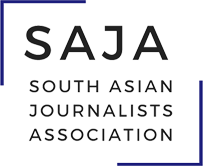Menu
Log in
Announcements |
Donate Now
SAJA has awarded over $400,000 in scholarships, internship and other awards to help graduate, undergraduate and high school students pursue their education and future careers in journalism. SAJA Scholarships and other awards are made possible through generous contributions from numerous individual and institutional donations. To donate to SAJA and help future scholarship classes: |
| QuickLinks |
Powered by Wild Apricot Membership Software

